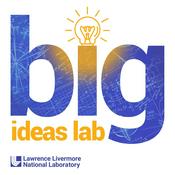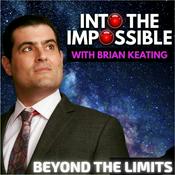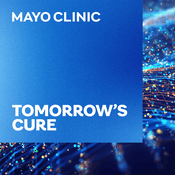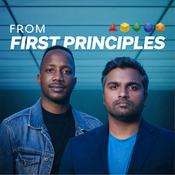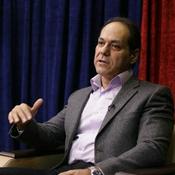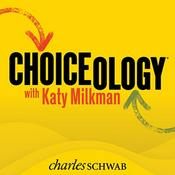76 episodes
- Social norms and deviance as covered in the MCAT is a fascinating topic, and in this episode, we'll break down the intersection of social norms—folkways, mores, taboos, and laws—how they play a crucial role in shaping societal values, and what happens when these norms break down, a concept known as anomy. Plus, we'll delve into collective behavior phenomena such as fads, mass hysteria, moral panic, and riots, touching on some real-life examples and historical comparisons.
Expect a comprehensive overview, with real-world relevance and plenty of examples to help solidify your understanding.
Visit MedSchoolCoach.com for more help with the MCAT.
Jump into the conversation:
[00:00] Introduction to the MCAT Basics
[04:57] Breaking social norms is not a big deal.
[09:00] Jeffrey Dahmer was a serial killer.
[12:41] Breaking social norms, deviance explained in theories.
[14:03] Biking under influence leads to deviant identity.
[19:02] Weak community ties breed crime, social disorganization theory.
[20:20] Cultural deviance theory explains lower class deviance.
[23:39] Social control theory emphasizes individual responsibility for deviance.
[26:58] Orson Welles's 1938 radio drama causes hysteria. - In this episode, we’ll nail down all that is needed for the MCATB in relation to fat and protein metabolism. Two critical processes for gaining energy and maintaining cellular functions in the body. We'll learn about the intricate details of beta-oxidation, where fatty acids are broken down in the mitochondrial matrix to produce energy-rich molecules like NADH, FADH2, and acetyl CoA.
From protein catabolism, where proteins are broken down into amino acids that feed into gluconeogenesis and ketosis pathways, to protein anabolism, where these amino acids are incorporated into new proteins. You'll get insights into the role of amino acids in synthesizing other compounds like serotonin and nucleotides.
Visit MedSchoolCoach.com for more help with the MCAT.
Jump into the conversation:
00:00 Introduction to MCAT Basics
01:25 Fat metabolism
02:00 Fat absorption
06:45 Breakdown of fats
08:30 Lipolysis
10:15 Transport of fatty acids
11:20 Beta oxidation pathway
13:40 Energy yield from beta-oxidation
16:00 Odd-chain and unsaturated fatty acids in beta-oxidation
20:00 Differences in energy production and pathways.
22:29 Fatty acid synthesis
25:15 Ketone body formation and usage
28:00 Protein breakdown (catabolism)
31:45 Glucogenic and ketogenic amino acids
35:00 Protein synthesis (anabolism) - In this episode, we’ll cover crucial aspects such as hormones, their origins and mechanisms of action, and the various structures within the endocrine system. We'll also decode complex cell-to-cell communication and distinguish between different hormone types—peptide, protein, steroid, and lipid-derived.
Furthermore, we'll explore key endocrine disorders like diabetes and hyper- and hypogonadism, discussing their causes, symptoms, and relevance to the MCAT. In addition, we'll touch upon the functions and hormones of several glands, including the pituitary, thyroid, adrenal glands, and pancreas.
Visit MedSchoolCoach.com for more help with the MCAT.
Jump into the conversation:
00:00 Introduction to the MCAT Basics Podcast with host, Sam Smith
03:34 Exosomes act as information carriers for cells.
09:00 Large, charged substances dissolve in blood easily.
10:30 Protein kinase A activates multiple molecules quickly.
15:57 Podcast discusses prostaglandin, thromboxins, leukotrienes and glands.
18:22 Hormones explained: flat peg and pineal gland.
23:15 Endocrine diseases: hyperthyroidism, hypothyroidism, hyperinhypogonadism, diabetes.
26:33 Autoimmune disorder characterized by overactive thyroid production.
29:28 Hypothalamus role in hormone production and disorders.
34:01 Type 1 diabetes: Genetic and environmental factors.
35:47 Diagnosis and causes of type two diabetes.
39:18 Med School Coach elevates your application level. - This episode is packed with essential high-yield information for your MCAT prep, covering the biological, physiological, and psychological aspects of sleep. We’ll explore various sleep theories, like the Memory Consolidation and Brain Plasicticity Theories, and even discuss the controversial “Sleeping When You Die” theory. We’ll also delve into dream theories, including Freud’s interpretations and the Activation Synthesys Hypothesis. Plus, we’ll address common sleep disorders such as insomnia, sleep apnea, and narcolepsy, alongside the effects of different drugs on your sleep patterns.
We’ll cover critical brain structures involved in sleep, such as the hypothalamus and the suprachiasmatic nucleus, and break down the stages of sleep measured through EEG, EMG, and EOG.
Visit MedSchoolCoach.com for more help with the MCAT.
[00:00] Introduction to the MCAT Basics podcast with host, Sam Smith
[04:05] Pineal gland, amygdala, basal forebrain in sleep.
[07:40] Measuring postsynaptic potential, not action potentials. EEG waves distinguish sleep stages. EMG records muscle electrical activity.
[10:46] Alpha waves awake, theta waves asleep. Hallucinations in stage N1 sleep.
[15:01] Unconfirmed sleepwalking. Stages of sleep explained.
[18:18] Sleep cycles lengthen REM stage, diagrams illustrate.
[19:50] We don't remember all our dreams.
[23:55] Shifting circadian rhythms due to changes in light.
[29:10] Blind people's melatonin release entrained with light.
[29:41] Cortisol secretion cycle follows a circadian rhythm.
[35:09] Freud: Dreams represent unconscious desires; manifest vs latent.
[38:53] Divorce dreams related to spouse thinking time. Broad sleep disorder categories: insomnia, breathing, hypersomnolence.
[41:18] Hypersomnia, narcolepsy, drugs' impact on sleep.
[44:14 Brief primer on drug effects on sleep. - In this episode, we're covering the anatomy and physiology of key organs such as the kidneys, liver, skin, lungs, and large intestine, and discuss the crucial role they play in eliminating waste products from our bodies.
From the structure of the hepatic lobules in the liver to the sweat glands in our skin and the alveoli in our lungs, we'll cover how each component functions to maintain homeostasis. We'll also delve into the metabolic breakdown processes and the excretion of waste molecules such as urea, electrolytes, and gases like carbon dioxide.
Visit MedSchoolCoach.com for more help with the MCAT.
Jump into the conversation:
[00:00] Introduction to the MCAT Basics Podcast with host, Sam Smith
[04:50] Kidney, adrenal glands, nephrons filter blood. Bladder stores waste connected to kidneys.
[09:57] Liver has lobes and functional hepatic lobules. Skin excretes through sweating.
[12:20] Lung anatomy: trachea, bronchi, alveoli, gas exchange.
[16:54] Urea cycle energy requirement, deamination of amino acids.
[20:35] Urea density calculates volume of small ice cube.
[24:15] Carbon dioxide is a metabolic byproduct.
[27:46] Liver metabolizes drugs into water-soluble compounds.
More Science podcasts
Trending Science podcasts
About MCAT Basics (from MedSchoolCoach)
Join us as we detail MCAT exam topics. Each podcast covers several MCAT sections with lessons based on review material put out by the AAMC, such as practice tests and question banks. Sam also interviews MCAT tutors and experts who share tips on how premed students can raise their score to get into medical school.
Podcast websiteListen to MCAT Basics (from MedSchoolCoach), Ologies with Alie Ward and many other podcasts from around the world with the radio.net app
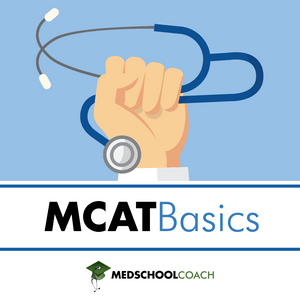
Get the free radio.net app
- Stations and podcasts to bookmark
- Stream via Wi-Fi or Bluetooth
- Supports Carplay & Android Auto
- Many other app features
Get the free radio.net app
- Stations and podcasts to bookmark
- Stream via Wi-Fi or Bluetooth
- Supports Carplay & Android Auto
- Many other app features


MCAT Basics (from MedSchoolCoach)
Scan code,
download the app,
start listening.
download the app,
start listening.










